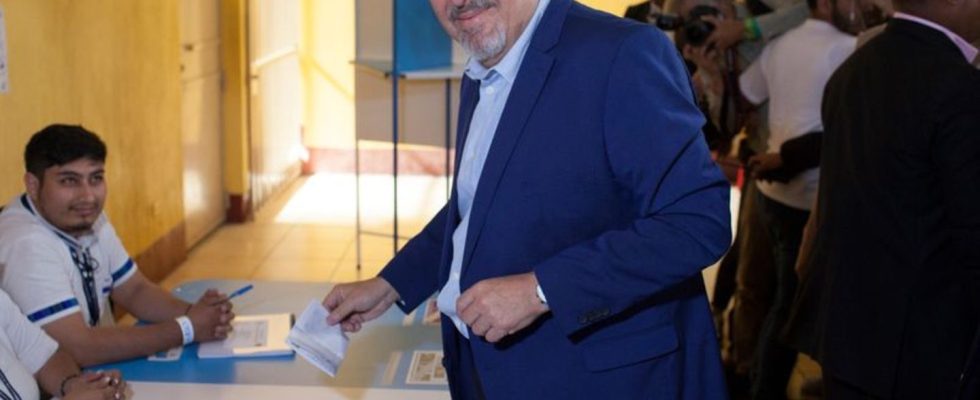Choose
Guatemala: Corruption fighter becomes new president
Bernardo Arevalo, presidential candidate of the Movimiento Semilla (Movement Seed Movement) party, casts his ballot in the runoff of Guatemala’s presidential elections. photo
© Sandra Sebastian / dpa
People celebrate with honking and dancing in the streets after the election victory of the social democrat Arévalo. Posters read: “Spring is here”. Expectations are high.
His opponent, three-time presidential candidate Sandra Torres, got 37.2 percent. However, the former first lady did not initially admit her electoral defeat. Outgoing Conservative President Alejandro Giammattei congratulated 64-year-old Arévalo on the win.
“This victory belongs to the Guatemalan people, and now we will fight corruption together,” said the election winner on Monday night. When he takes office on January 14, he will make politics for all of Guatemala’s 17 million inhabitants.
The European Union congratulated Arévalo on the election victory and the Guatemalan people for their strong commitment to democracy. It is now of crucial importance that all state institutions and areas of society contribute to the orderly transition, it said in a statement.
“Spring is here”
The sociologist Arévalo is the son of the first democratically elected President of Guatemala, Juan José Arévalo (1945-1951). He was born in Uruguay in 1958 during his father’s exile and studied in Israel and the Netherlands. In the 1990s he was deputy foreign minister and ambassador of Guatemala to Spain. He later worked for the international organization Interpeace in the field of conflict resolution. He was also an MP for his party, which was formed after the 2015 anti-corruption citizen protests.
Before the elections, the public prosecutor’s office had announced that it would continue to investigate the Semilla party for alleged violations of the law. Critics accuse the public prosecutor’s office of being influenced by corrupt power elites.
After Arévalo’s election victory, many people celebrated in the streets with blue and white flags. “Spring is here,” read the posters. Guatemala is the most populous country in Central America and the region’s largest economy with high poverty rates. Thousands of people leave the country every month, trying to get to the United States via Mexico in search of a better life. Other important issues for Guatemalans are crime, inflation and unemployment.
Former Attorney General Thelma Aldana, who lives in US exile, speaks of the prospect of a “democratic spring” with Arévalo. However, corrupt power elites are likely to try to destabilize the future government, she told the German Press Agency. With just 23 MPs out of 160, Semilla will not have his own majority in Parliament.
“Pact of the Corrupt”
“Because the “Pact of the Corrupt” is strong, because it has economic and political resources at its disposal and has the judicial institutions at its service, there is always a risk,” said the lawyer, who was awarded the as alternative Nobel Prize, the well-known Right Livelihood Award. But the citizens would form the counterweight. “The legitimacy is very important when it comes to governance,” she said. In Guatemala, the “Pact of the Corrupt” is an informal alliance between political, economic, legal and criminal actors to protect their own interests.
In June, Arévalo, who wants to take action against corruption and the erosion of democracy in Guatemala, unexpectedly became the second strongest candidate in the first ballot. Torres landed in first place. In the previous two elections, Torres failed in the runoff.

